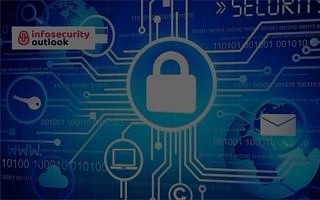Dean Reilly is a seasoned professional in penetration testing and ethical hacking. His unique methodology in uncovering security vulnerabilities has led to numerous organizations bolstering their cybersecurity measures. Dean strongly advocates for the dissemination of knowledge and frequently shares his insights on ethical hacking.
Hey there! I'm Max Stealth, and I'm here to shed some light on the definition of 'internet security' for you. Internet security is a crucial aspect of our digital world, and understanding it is essential for staying safe online.
In simple terms, internet security refers to the measures and practices put in place to protect your online activities, data, and systems from unauthorized access, attacks, and potential threats. It encompasses a wide range of techniques, technologies, and best practices designed to safeguard your digital presence.
When we talk about internet security, we're talking about protecting everything from your personal information, such as passwords and financial details, to your devices, networks, and the data you transmit over the internet. It's all about ensuring that your online interactions are secure and that your information remains confidential and protected from malicious actors.
To achieve internet security, several key components come into play. Let's take a closer look at them:
1. Authentication and Access Control: This involves verifying the identity of users and granting them appropriate access privileges. It ensures that only authorized individuals can access sensitive information or perform certain actions.
2. Encryption: Encryption is the process of converting data into a format that can only be read by authorized parties. It protects your data from being intercepted or tampered with during transmission, making it unreadable to anyone without the decryption key.
3. Firewalls: Firewalls act as a barrier between your internal network and the internet, monitoring and controlling incoming and outgoing network traffic. They help prevent unauthorized access and filter out potentially harmful data packets.
4. Antivirus and Anti-malware Software: These tools are designed to detect, prevent, and remove malicious software, such as viruses, worms, Trojans, and spyware. They scan your devices and networks for any signs of malicious activity and help keep them clean and secure.
5. Regular Software Updates: Keeping your operating systems, applications, and devices up to date is crucial for internet security. Software updates often include patches that fix vulnerabilities and address security issues, so it's essential to install them promptly.
6. User Education and Awareness: One of the most critical aspects of internet security is user education. By staying informed about common threats, phishing scams, and best practices, you can make informed decisions and avoid falling victim to cyberattacks.
Remember, internet security is an ongoing process. It requires constant vigilance, regular updates, and a proactive approach to stay one step ahead of cybercriminals. By implementing these measures and staying informed, you can navigate the digital world with confidence and protect yourself from potential threats.
I hope this explanation has given you a clear understanding of what internet security entails. If you have any more questions or need further guidance, feel free to reach out. Stay secure out there!















